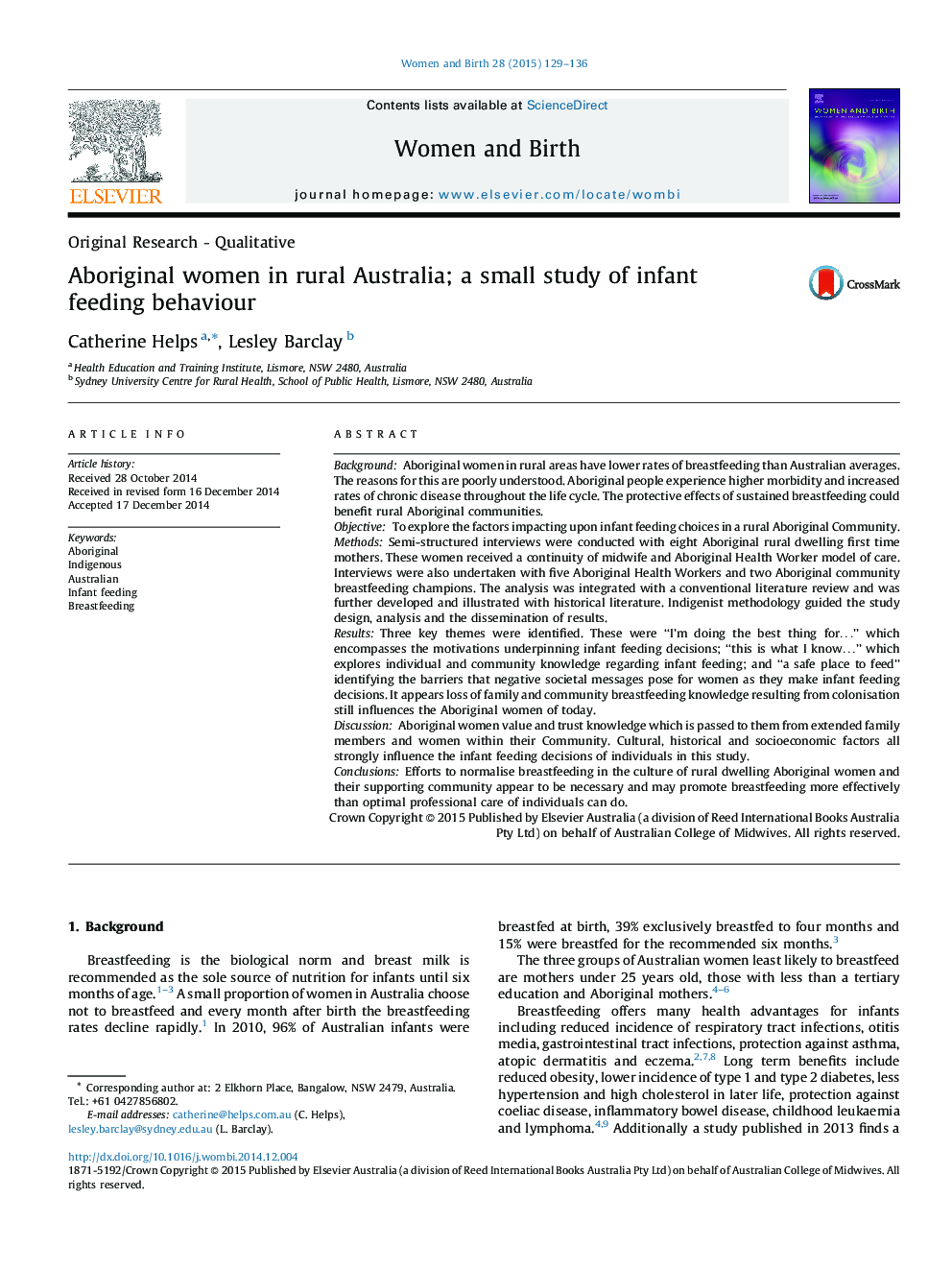| Article ID | Journal | Published Year | Pages | File Type |
|---|---|---|---|---|
| 5866275 | Women and Birth | 2015 | 8 Pages |
BackgroundAboriginal women in rural areas have lower rates of breastfeeding than Australian averages. The reasons for this are poorly understood. Aboriginal people experience higher morbidity and increased rates of chronic disease throughout the life cycle. The protective effects of sustained breastfeeding could benefit rural Aboriginal communities.ObjectiveTo explore the factors impacting upon infant feeding choices in a rural Aboriginal Community.MethodsSemi-structured interviews were conducted with eight Aboriginal rural dwelling first time mothers. These women received a continuity of midwife and Aboriginal Health Worker model of care. Interviews were also undertaken with five Aboriginal Health Workers and two Aboriginal community breastfeeding champions. The analysis was integrated with a conventional literature review and was further developed and illustrated with historical literature. Indigenist methodology guided the study design, analysis and the dissemination of results.ResultsThree key themes were identified. These were “I'm doing the best thing for⦔ which encompasses the motivations underpinning infant feeding decisions; “this is what I know⦔ which explores individual and community knowledge regarding infant feeding; and “a safe place to feed” identifying the barriers that negative societal messages pose for women as they make infant feeding decisions. It appears loss of family and community breastfeeding knowledge resulting from colonisation still influences the Aboriginal women of today.DiscussionAboriginal women value and trust knowledge which is passed to them from extended family members and women within their Community. Cultural, historical and socioeconomic factors all strongly influence the infant feeding decisions of individuals in this study.ConclusionsEfforts to normalise breastfeeding in the culture of rural dwelling Aboriginal women and their supporting community appear to be necessary and may promote breastfeeding more effectively than optimal professional care of individuals can do.
